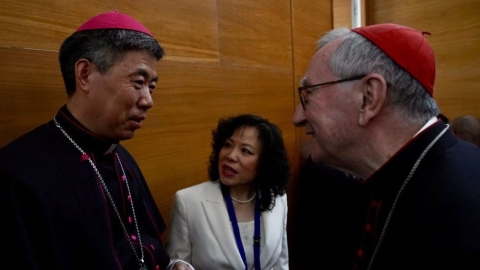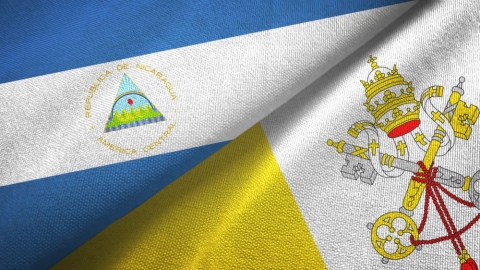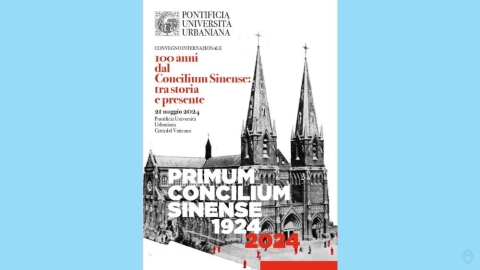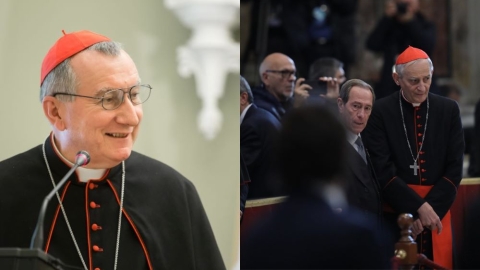Even more perplexity after the Pope’s latest interview with Scalfari

On July 13, 2014, Pope Francis once again confided in Eugenio Scalfari, a declared atheist and founder of the Italian daily newspaper La Repubblica. The Supreme Pontiff, who had already granted an interview to that journalist last October, asserts this time that according to “reliable data” it is estimated that “the level of pedophilia in the Church is 2%,” and he explains that these “pedophiles are 2% of the priests and even of the bishops and cardinals.” On the question of ecclesiastical celibacy, we can also read in this interview: “Maybe you do not know that celibacy was established in the tenth century, in other words, 900 years after the death of Our Lord. The Eastern Catholic Church to this day has the option of married priests. The problem certainly exists but is not very widespread. It will take time, but there are solutions and I will find them.”
Scarcely a few hours after the publication of that exchange, Father Federico Lombardi, Director of the Press Office of the Holy See, reacted and denied part of its contents, while recognizing the validity of the “general sense and spirit” of the text. In a note, the spokesman for the Holy See singled out “two statements that have attracted a lot of attention but cannot be attributed to the pope”: the fact that there are “cardinals” among the members of the clergy who are guilty of acts of pedophilia, and the Supreme Pontiff’s decision to find “solutions” concerning the question of priestly celibacy.
In the Autumn of 2013, the publication of the first interview with Eugenio Scalfari had stirred up a controversy because of the unreliability of certain sentences. The journalistic work method of the founder of La Repubblica, who operates without recording or literal transcription, but simply by taking non-exhaustive notes, had put the Holy See at a loss. Several weeks after the publication, the interview had been taken down from the Vatican website, as a reflection on its journalistic, non-magisterial character. Now this interview dated October 1, 2013, was posted online again at the Vatican website on July 16, and then withdrawn again on the 18th. In it the following statements could be read: “Q. Your Holiness, you yourself wrote it in a letter that you sent me. Conscience is autonomous, you said, and everyone must obey his conscience. In my opinion that is one of the most courageous things a pope ever said.” “A. And I repeat it here. Everyone has his own idea of Good and Evil and everyone must choose to follow the Good and to fight Evil according to the idea that he had formed for himself. That would be enough to make the world a better place to live in.” Although they have been taken down from the Vatican website, these completely relativistic statements have never been denied by the Pope or by his spokesman.
This new episode poses once again the question as to the degree of authority that must be assigned to the words of the Supreme Pontiff. Since October 2013, some observers had pointed out, especially in the social media networks, that this was perhaps “one interview too many” after the very recent publication of other interventions of the Pope. But this latest one did not stop there, quite the contrary. Then too, many people are surprised that such a situation should recur, with the same journalist. Scalfari’s latest statement, in the July 20 issue of La Repubblica, settles nothing. He does not apologize at all and declares: “He (Francis) is transforming and renewing the Church and its structures, which have great need of it.” And this declared atheist adds: “He is a great pope, he will leave a profound mark on the history of the Church, which has a great need of emerging from its overlong isolation. No one is infallible, and Bergoglio knows that the pope is not either.”
In Italy there were numerous reactions to the July 13 interview. The Vaticanist at La Stampa, Marco Tossati, wrote: “Unfortunately, many questions remain. The first: since the episode is nothing new (this is the second time that this has happened), why do it? One billion two hundred million Catholics have the right to know precisely what the pope said. Especially about such delicate and interesting topics. If the interviewer, for reasons of his own, declines to use an audio recorder, and since there were already problems with the first encounter, it might be appropriate for the Holy See to buy one. In order to protect ‘the unsophisticated readers’ (an allusion to Fr. Lombardi’s statement), and so as not to appear naive—as though fooled a second time. Unless—and this is another possibility—all this is part of a strategy. Tossing out sentences or half-sentences, which are eagerly grabbed, and leaving up to the interviewer’s voluntary responsibility the task of making them more sensational than they were to start with, so as to deny them afterward. Perhaps, according to the lyrics of a song, ‘to see what effect it has’. In this general uncertainty, that may also be the case. But there is already enough uncertainty, and not just in the world of believers.”
On July 14, on the Italian website Il papa emerito [The Pope-emeritus], viewers could read an open letter to the Pope by a Catholic who apologizes for being traditionalist: “... What did you really say, Your Holiness? I think that these millions of Catholics scattered throughout the world have the right to know what you really said to your interlocutor. Each one of us has the right (and the duty) to listen to his shepherd and to know what he thinks and how he acts. You will certainly understand that it is difficult for us to hear your lofty Magisterium through these conversations which, furthermore, are reported by someone who continues to spew out his rancor on us all. Because you, Your Holiness, know it very well: what Scalfari is interested in is not a dialogue with Catholicism and its faithful, but with the man Bergoglio, the powerful head of the Catholic Church. And he does this because to all appearances he derives great media and economic advantages from it....
“You do not have to find a solution to the problem of the Mafia, to the problem of pedophilia, to the ‘problem’ of celibacy. What made me very uneasy was to hear expressions such as ‘I will change everything...,’ ‘I will find the solution...,’ I, I, I. You, Holy Father, are at the service of Christ and have only to do what He tells you; everything else is the product of human subjectivity.
“Something else offended me: the fact that for the second time you (or your coworkers) fell into Scalfari’s trap, leading once again to the confusion of Catholics who are used to seeing the Pope as a reliable figure who points out with certitude (and I insist on this) the path of the faith. Holy Father, you are not Paul who must preach to the pagans, you are Peter who must confirm the faith of the brethren! And, I beg your pardon, since these latest statements I absolutely do not feel confirmed in the faith, but I have additional doubts about the Church in which I believe. Maybe you do not realize it (because although you live at [the Casa] Santa Marta, you nevertheless live an isolated life), but here, outside, there are many Catholics who no longer know what to believe. And those who were already plunged into confusion are much more so now. This is not normal, especially when you tell me that the Catholics who have certainties pose a problem. Your Holiness, may I confess something to you? Many Catholics have chosen to remain silent about these statements, and about others, so as to avoid contradicting their own pope.... Can I say one last thing to you? ‘Deny yourself,’ stop being the impulsive Bergoglio, and finally put on the vestments of Peter, the one who feeds his flock and protects it from the wolves...”
(Sources: Apic/Imedia/Stampa/ilpapaemerito/benoitetmoi – DICI no. 299 dated August 1, 2014)
You can also read:
Bis repetita non placent
Italy: Scalfari’s blunders





